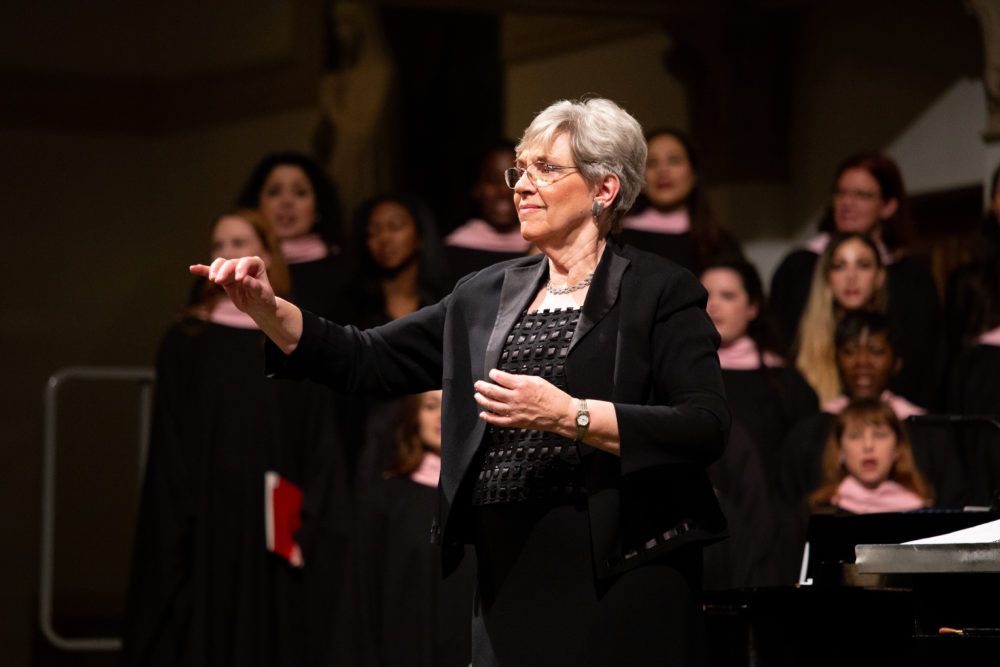
“We are all caught in an inescapable network of mutuality, tied in a single garment of destiny. And what affects one directly affects all indirectly. For some strange reason, I can never be what I ought to be until you are what you ought to be. And you can never be what you ought to be until I am what I ought to be.”
– Rev. Dr. Martin Luther King Jr.
By Jennifer Abe, vice president for intercultural affairs
We are connected to each other, “tied in a single garment of destiny,” he told members of the Temple Israel in Hollywood that day. The vision of justice Rev. Dr. Martin Luther King Jr. brought to life for our country through his words and leadership was always grounded in faith. His faith compelled him to lift the veil on white supremacy, refuse its dehumanizing, unjust consequences, and to desire and demand, with others, a different kind of society – a society that would build upon the truth of our fundamental interconnectedness, not the lie of racial superiority and inferiority.
It was Feb. 26, 1965, when he gave his sermon titled “Keep Moving from this Mountain.” What were these “symbolic mountains we have occupied long enough” of which he spoke? Racial injustice. Segregation. Indifference to poverty. Those are some that he named in that moment, in his time. Using the experience of the Israelites enslaved in Egypt, King noted that the mountain always stands between what has been, familiar and known oppression, and the dream of a promised land, a yet-unrealized vision of the future. However we now name and label the injustices where our society lingers and dwells, the question he raised that day continue to challenge us – how do we keep moving from this mountain? How do we keep moving when racial injustice and systemic oppression are the only realities we have ever really known?
I listen to the words of Dr. King on a January evening in 2021, and find myself longing for a promised land that seems so far away. I feel moved by the slow cadence of his words and deep timbre of his voice, and by what his sermon represents to me – a voice of courageous, ethical leadership grounded in love and a soul-blazing commitment to justice. I am also keenly aware of our current historical moment, feeling demoralized by the mountainous forces that keep our country from realizing, seeing, understanding, that the violence of systemic oppression severs our capacity to realize our full humanity, individually and collectively. Obscuring the truth of our interconnectedness. For those suffering from oppression, the result is continual blocking of access to the resources, supports, and opportunities that others have, that enable human survival and thriving. For those with privilege, oppression results in the continual severing of empathy, avoidance of seeing and connecting with others’ experiences, and the maintenance of toxic illusions that aim to dehumanize, diminish, and destroy the Other.
Still, the exercise of faith without love is dangerous, because all visions and actions can be framed and justified in the language of faith alone, isolated from truth. We saw this in the assault on our Capitol earlier this month, where symbols of white supremacy and videos of violent behavior were mixed with images of people bent in prayer, carried by religious fervor. Clearly, while faith is intoxicating and powerful, it is not enough. What serves to keep us accountable in our expressions of faith? What can check us in how we define and frame justice for our own purposes? What opens us to truth?
Rev. Dr. King’s vision connected experiences of oppression across continents, peoples, and cultures. His compassion and concern, centered in the experience of African Americans in the United States, extended outward without boundaries. Yes, his faith anchored his convictions and vision. But his faith was grounded in love, manifested in revealing truth, seeking justice. His vision was, at its heart, all about love. Love does not, cannot, dehumanize. Love compels us to see the Other as neighbor, in their full humanity and irreducible dignity, and to respond accordingly. We are interconnected, fully joined. A single garment. The warp and weft of justice is woven through mercy and love, not only faith and truth.
The Anti-Racism Project at LMU is about moving from this mountain. It is about undertaking a long journey from a familiar, albeit oppressive, reality, into and toward the promise of something none of us have ever seen before. We will continually work to transform our institution towards equity, inclusion, and justice, and understand this commitment will not end. It will be messy, and yes, sometimes we will get tired. Nonetheless, we are making a commitment to keep moving.
Beginning in February, we will provide weekly updates on our university’s anti-racism journey, reporting progress, sharing stories that challenge and encourage us, and celebrating big and small victories along the way. We will invite you to contribute, so look for those opportunities. On Feb. 4, from 4-5:30 p.m. PST, we will host a virtual forum on “Truth and Reconciliation: The Sin of Jesuit Slaveholding” to examine where we have come from, our historical complicity in slavery as a Jesuit institution. What will be our response to this truth-telling?
Setting our sights on the future we want to bring into being, we are moving from this mountain.



